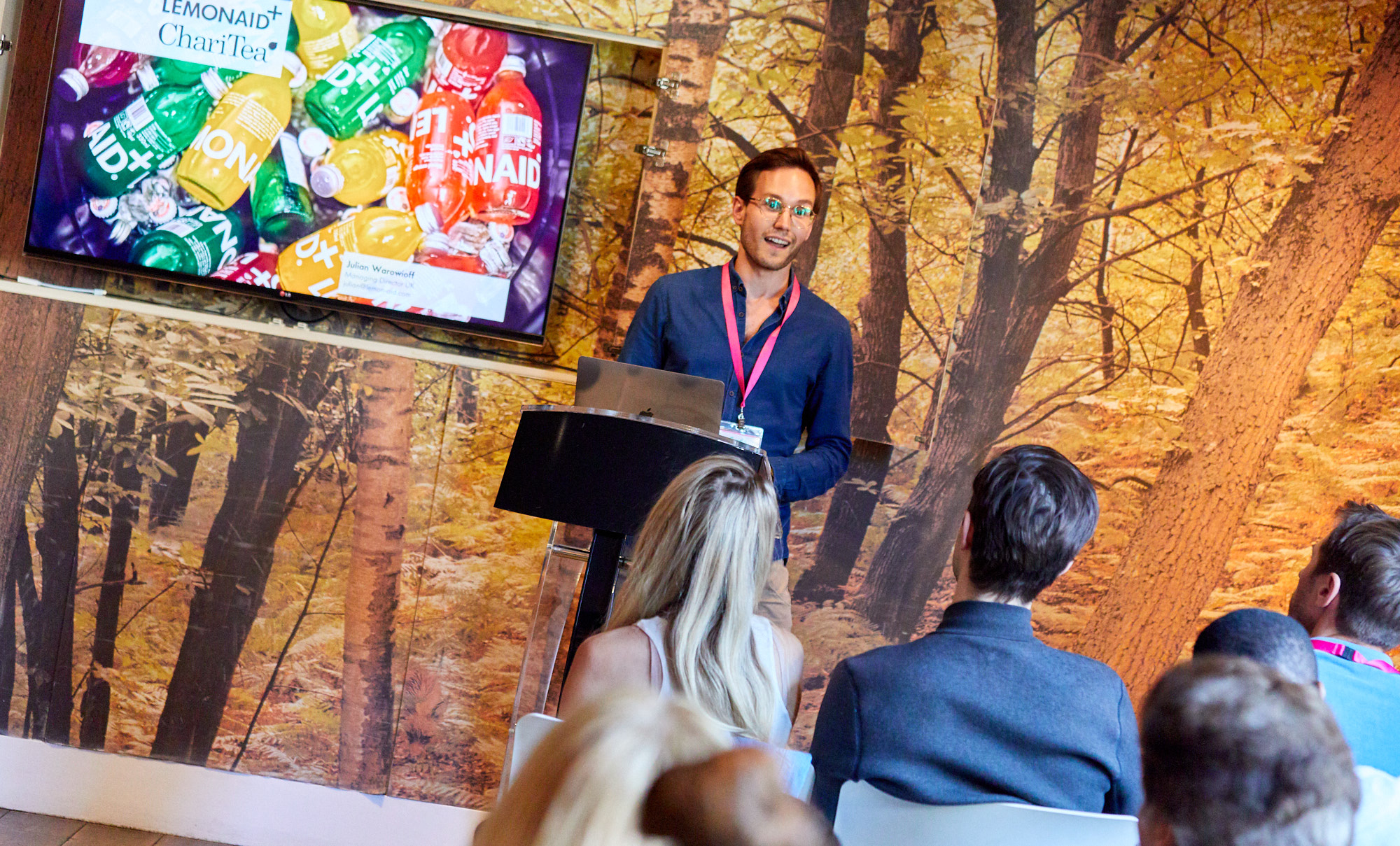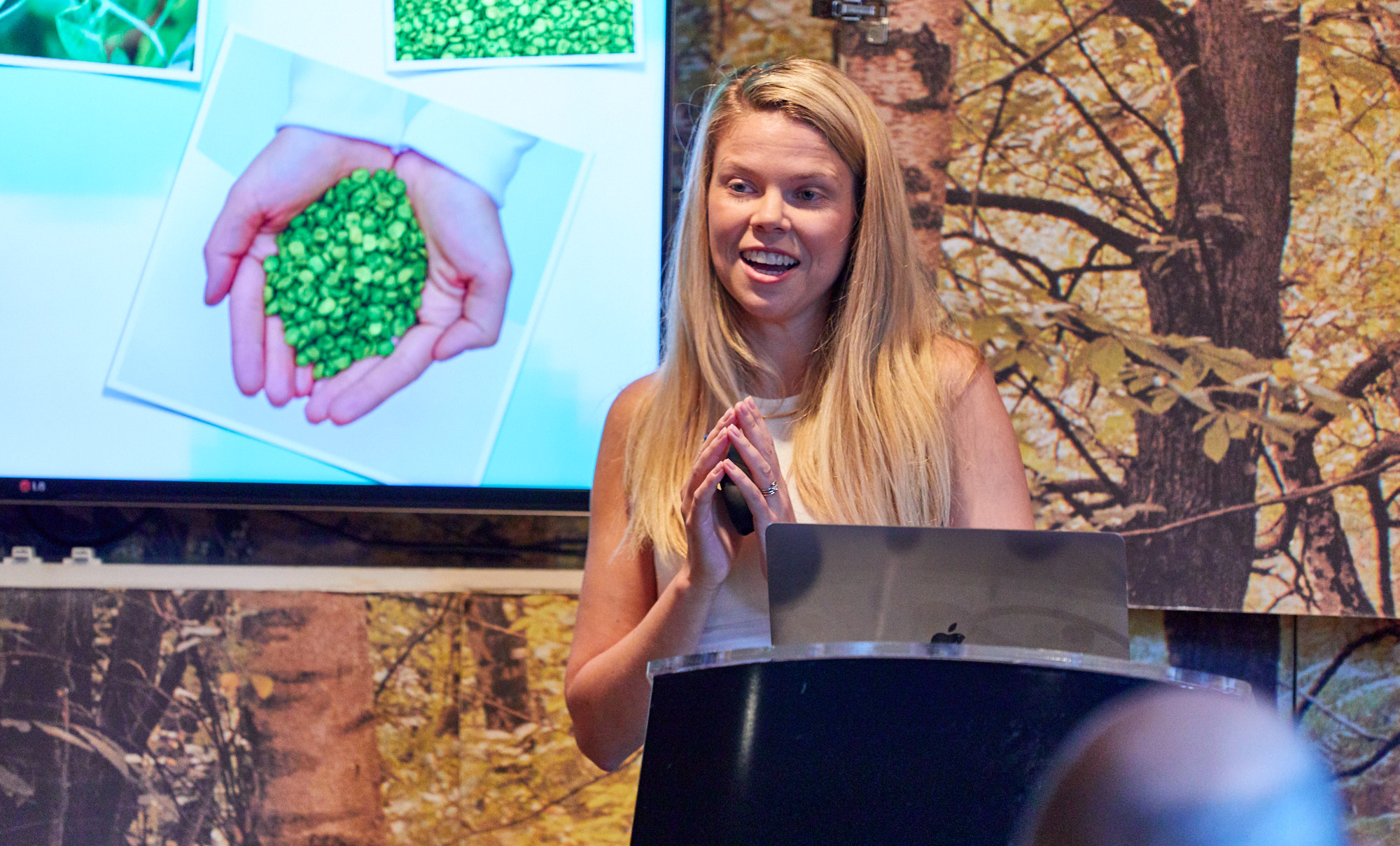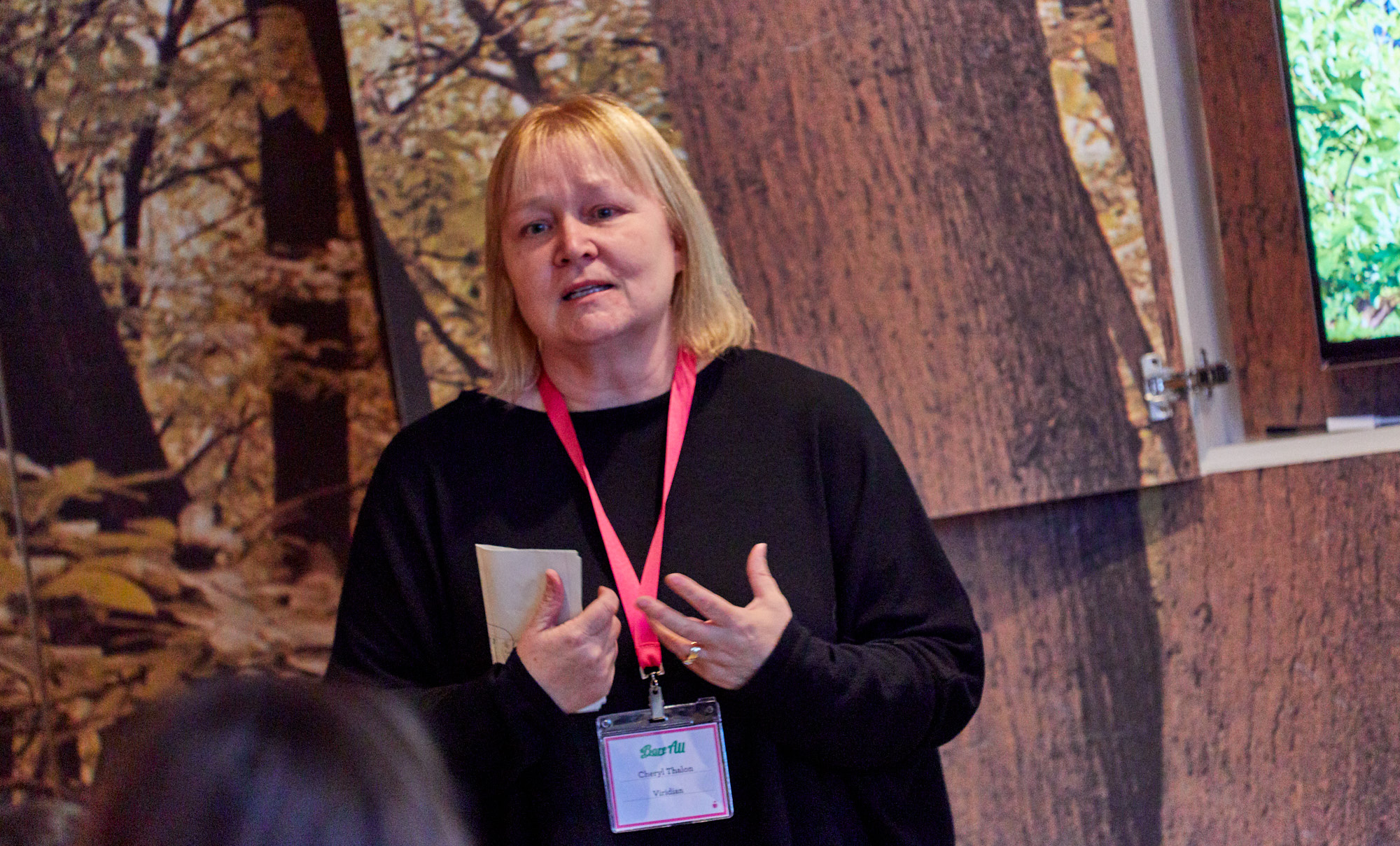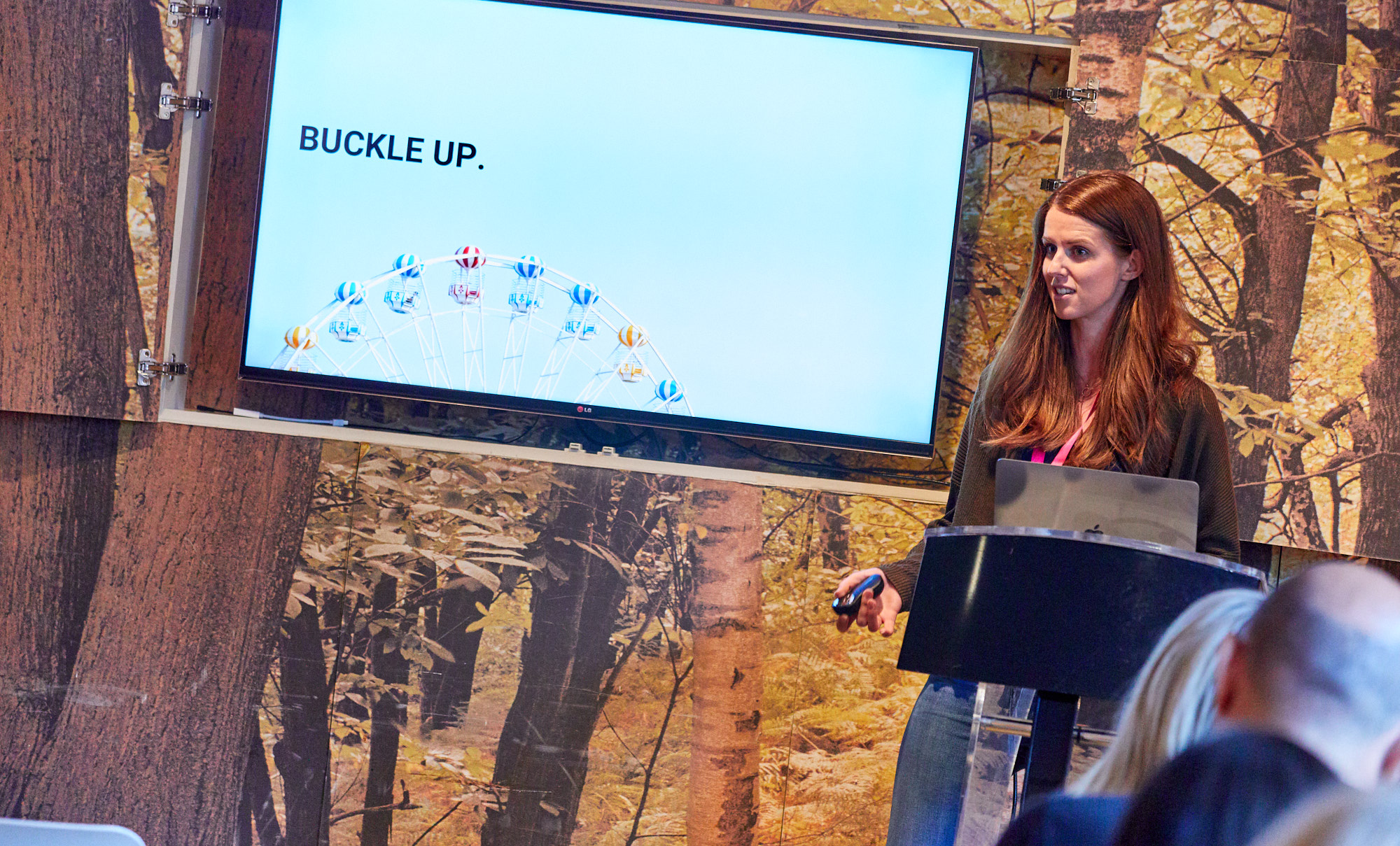The Good Business Stories: Empowering Change
The Forest Room of the Hospital Club was the perfect environment for four forthright, funny and fantastically inspiring speakers from the food and wellness industries to share their stories and, after a quick drink and a chinwag, it was on with the show. From ethical entrepreneurship to sticking to your convictions as your business grows around you, all four touched on a common and crucial theme: can you create a successful business without compromising on doing good?
Creativity beats budget
Julian Warowioff, Lemonaid

Lemonaid’s story is about doing good from the get-go. In Sri Lanka, founder Paul grew disillusioned by the wastage and inflexibility of the GIZ (Germany’s equivalent of the Department for International Development) while working to help restore the country’s infrastructure in the aftermath of the devastating Indian Ocean tsunami.
Desperate to do something, anything to make a difference, he took inspiration from the ubiquitous limeades sold by Sri Lanka’s “juice wallah” street vendors. Made from just a few ingredients – and a thousand times tastier than the average bottled soft drink – they could provide a refreshing alternative for German soft drinkers and put the proceeds in the pockets of Sri Lankan growers (OK, it was a smidge more complicated than that – but this is not a story about the word “no”…)
The aim was always to be a charitable enterprise as well as a business, but Lemonaid began putting their money where their collective mouth is from Year 1 – long before they were profitable. “Our accountants said we were crazy,” UK founder Julian Warowioff explains.
The Lemonaid & Charitea Foundation has raised £2.5 million to date for social enterprises across the global south, and plans to donate another £1 million in 2018.
Lemonaid is constantly finding truly innovative ways to do good. “Creativity beats budget,” Julian says, pointing to Lemonaid’s upcycling initiatives for their glass bottles, and the plastic crates they’ve recycled as bottle collection points to help German homeless people recycle bottles for the deposit. They even turned their office in Hamburg into a “refugee welcome centre” during the refugee crisis of 2016. Would many of us have the fortitude and purpose to meet a challenge like that?
The eventual aim, according to Julian? “Turn capitalism on its head, and start making it do something truly useful.”
Purpose fuels your passion
Amber Fraser, Brave

BRAVE founder Amber and her husband/business partner Seb are “obsessed with pulses.” But they didn’t use to be. As they both climbed the corporate ladder they began to feel keenly the need to align their personal passions – especially veganism and lessening our impact on the environment – with their day job.
All they needed was to find the right enterprise to dedicate their efforts to… only that’s the difficult part, when all’s said and done. Amber and Seb struggled with the question as much as anyone. “It took us years to figure out.”
The Japanese Ikigai diagram helped clarify their goal: encouraging the world to eat more plant-based food by selling something delicious, healthy and sustainable. That’s where pulses come in. High in protein, fibre and vitamins, they also fix nitrogen into the soil, making them super-sustainable. Now, Amber can’t help but evangelise about these nutrient-dense superfoods: “the more we eat, the better off the planet will be.” BRAVE’s roasted pea snacks – all grown in the UK – are approaching their 1 year anniversary, are already stocked by dozens of retailers, and are part of the in-flight snack menu on Ryanair flights. Amber shared six insights from the journey so far:
- Small steps every day: The journey can – and will – be overwhelming. Concentrate on the now, and let the small things build up to big change.
- Prioritise: No one’s energy is limitless. Ask yourself: where can we have the most impact?
- Talk to people: You can learn from everyone. The day after BareAll, Amber and Seb head to East Anglia to meet their farmers and learn even more about growing peas.
- Educate yourself: The more you know, the more comfortable you’ll be discussing/working on it. The broader your knowledge, the better your decision-making will be.
- Purpose fuels passion: Starting a business is hard! You’ll need passion to keep you going, and purpose fuels that passion.
- Fortune favours the brave: Big risks can have big pay-offs.
Be humble… but don’t compromise
Cheryl Thallon, Viridian Nutrition

Cheryl Thallon, founder and owner of Viridian Nutrition, has a ready smile, a tireless work ethic and a seemingly indomitable will. She runs Viridian as a benign dictatorship. “I never compromise,” Cheryl says with a grin. Her career trajectory is equally distinctive;
- At 18, her self-published vegetarian guide to Edinburgh went whatever the equivalent of viral was pre-internet, and pulled her into the world of publishing.
- She spent three years editing Natural Food Trader magazine, visiting health food stores and natural product supply companies around the world – an experience that would change her life.
- Having awoken a genuine passion for healthcare (but more importantly for empowering people to engage with their own health), Cheryl worked for a family run supplement company for nearly a decade. When the company was sold to a large pharmaceutical company in 1999, Cheryl followed her gut not the paycheck.
- After years of genially battling suppliers and manufacturers and seeing exactly what goes into the health supplements of the big pharma firms, Cheryl found herself unable to compromise. “I thought: we’ll do it ourselves,” she says, and in that moment Viridian Nutrition was born.
Viridian launched with 24 products in December 1999 – now they offer sales, technical and marketing expertise to support more than 180 products, available in more than a dozen countries. Along the way she’s turned down retailers like Holland & Barrett and Boots, skirted bankruptcy, was forced to buy out her partner’s share, and spent the early years roping in friends and family members to keep the business afloat. All situations where’d she be forgiven for walking away – or at least compromising her goals and ideals, just for a little while.
Nah. She stuck to her guns, as she has throughout her life, and built success on her own terms. The overall result of a career without ethical compromise? “I haven’t worked a day in 40 years.” Her advice for anyone trying to do the same: Never stop learning. Reinvest at every opportunity. Get the right team and energy spirals upwards (so recruit slowly, dismiss quickly). And finally: be kind. Be grateful. “It’s a privilege to help other people to better health,” Cheryl says.
Making mistakes is a lot better than not doing anything
Lauren Armes, Welltodo

Lauren Armes is a business coach, speaker, writer and the entrepreneur behind Welltodo, a global B2B wellness-industry network that helps people build businesses and careers in the wellness industry.
As far as Lauren is concerned, building a business is as much about personal development than anything else. Recognising your own limiting beliefs is key, especially the limiting belief that holds many people back (and is basically tonight’s theme in reverse): “I can’t do something I love and make money.” Lauren exposes that belief is just that: a notion, not a fact. She shared some mistakes she’s made along the way.
- Giving it away for free. We’ve all done it, and it can be strangely tempting in the early stages of any project. The issue is that it can breed resistance to actually selling your skills – and eventually, you’re gonna have to. The only solution: understand your value. Nobody loves selling themselves, nobody likes the risk of rejection that results. But bite the bullet and learn to do it. Getting the remuneration you deserve will keep your passion and energy going.
- Not being crystal clear on who you are. You can’t keep everyone happy, especially with minimal resources. Trying to do so is incredibly frustrating, and will lead to burnout. Instead, pick one group and give them everything. Use yourself as a profile to find that group. Ask yourself: who was I when I needed this business most?
- Copy-catting. Lauren couldn’t help doing this to an American wellness brand she admired. “I got a bit obsessed,” she says. But although mimicking another brand’s style brought early success, her interest began to fade. So she focuses on what she really cared about and “got niche.” It’s important to get clear on what matters to you. Stand for something. Know why. Not only will it be easier to describe, sell and control, a business that works for YOU (and a business model that serves it) is the only way to lasting fulfilment.
- Invisibility. Resenting promotion is one of the greatest obstacles to success. “I caught myself saying ‘we’ when talking about the business,” Lauren says. “A lot of entrepreneurs do that. But there was no ‘we.’ There was just me.” Her solution: own it. “Be a founder.” Show up. Take responsibility. You might not feel like an expert but you know stuff other people don’t. You have a responsibility to share your passion with the world.
- Not good with numbers? Lauren wasn’t, and for a while she thought she could ignore it… but as an entrepreneur you HAVE to get good. Building, scaling, maximising opportunity: none of these will come about without a deep-dive into a spreadsheet. The only solution is to get good. Fall in love. Learn to make the numbers work for you.
The final one is something we might get printed and stuck on our wall:
- Making mistakes is a lot better than not doing anything. Our four speakers answered a question we’ve all asked – how can I be successful and do good – with four different stories that break down to a single resolution: act with purpose. Find a goal that resonates with you and then let the goal be what drives your passion. For our four speakers it was never about selling lemonade, or vitamin pills, or even pulses (although Amber is super-keen on pulses). It was about starting with the idea of doing something good and shaping their professional lives around that idea.
Sound inspiring? We thought so too. If you’d like to drop in – or speak – at the next BareAll, get in touch. You can do good while you grow your business, and we think that’s a message worth sharing together.